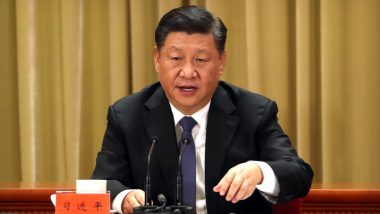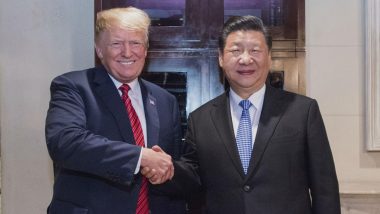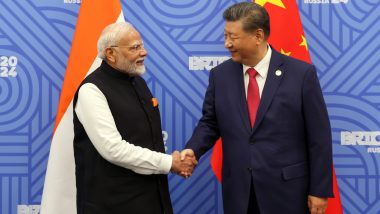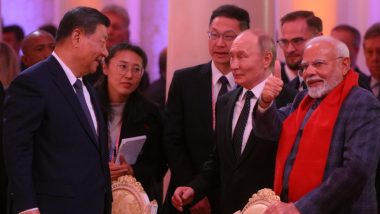Beijing, June 29: China's military reserve forces will be formally placed under the centralised and unified command of the Communist Party of China (CPC) and Central Military Commission (CPC), both headed by President Xi Jinping, from July 1 to ensure the ruling party's "absolute leadership" over it and build a world-class army.
Currently, the reserve forces are under the dual leadership of military organs and local Communist Party committees and they would be brought under the control of the ruling party and the CMC from July 1, the state-run Xinhua news agency reported. Also Read | Appointments Committee of Cabinet Approves Reappointment of Tushar Mehta as Solicitor General of India : Live News Breaking & Coronavirus Updates on June 29, 2020.
China's People's Liberation Army (PLA) in 2017 announced plans to reduce the strength of the reserve forces and bring them under the control of the central leadership as part of the reforms of the military.
The reforms included cutting down the size of the military by three lakh troops reducing the size of the PLA, the world's largest military force, to two million personnel. Also Read | COVID-19 Vaccine Update: China's CNBG Finds Success in Human Trials of Another Experimental Vaccine.
An official announcement on Sunday said the reserve forces are "an important part of the PLA and the adjustment in the leadership structure is aimed at upholding the CPC's absolute leadership over the army and building a strong military in the new era."
It calls on relevant military and civilian units to take active and coordinated measures to implement the changes to the leadership structure. Since he took over power in 2013, Xi, 67, has ordered all PLA ranks to strictly under the CPC leadership. Xi is also the General Secretary of the CPC.
China watchers have called Xi the most powerful Chinese leader since Chairman Mao Zedong, especially since he managed to amend the Constitution to end the two-term presidential limit in 2018.
According to the reforms process announced in 2017, the CMC will take charge of the overall administration of the PLA, the Chinese People's Armed Police and the militia and reserve forces. This meant that all forces would work directly under central leadership headed by Xi.
The thrust of the reforms included a reduction of the ground forces and an increase in the role and scope of the Navy and the Air Force as part of China's push to expand its global influence.
The structure of the reserve forces will adapt to information warfare from traditional combat-oriented and mechanised ones, the PLA announced in 2017.
China's current reserve forces are mainly composed of reserve military officers and soldiers as well as a small number of active-service military personnel.
Reserve military officers are selected from eligible veteran officers, local officials, and officers in the people's armed force, militia cadres and related technical personnel.
"Centralising the leadership of reserve forces will make it easier to mobilise and manage reserve forces. They are important supplementary parts of active-duty military units," Li Daguang, a professor at the National Defense University of the PLA, told the Global Times.
Many reserve forces have their specialities. Military news outlet 81.cn reported on June 15 that Tibet has five militia groups involved in patrols, communication, engagements and rapid response. Twenty personnel, who are good at wrestling and unarmed combat from a fighting club, are reportedly enrolled as members of the militia.
Li said that reserve forces in China would not be normally mobilised until a large-scale local war breaks out. Song Zhongping, a Chinese mainland military expert and TV commentator, told the daily that China has always kept a close watch on the developments of reserve forces in the border areas, especially in the Tibet Autonomous Region and the Xinjiang Uygur Autonomous Region, as they are important parts of local military preparedness and battles against separatism.
The PLA Tibet Military Command's reserve forces are an example. The militia has adjusted to the cold and thin air environment, and are superior in high-altitude warfare. Their special abilities will greatly help the PLA, Song said.
(This is an unedited and auto-generated story from Syndicated News feed, LatestLY Staff may not have modified or edited the content body)






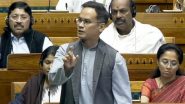


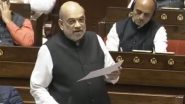



 Quickly
Quickly








